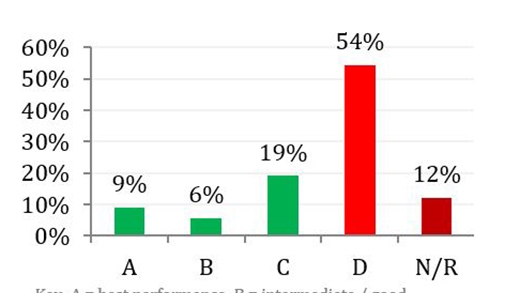Credit Consolidation Singapore: Also Found Here for Efficient Debt Solutions
Credit Consolidation Singapore: Also Found Here for Efficient Debt Solutions
Blog Article
The Comprehensive Guide to Producing an Efficient Debt Monitoring Strategy for Overcoming Financial Difficulties
Navigating financial obstacles requires a critical method to debt administration, emphasized by an extensive understanding of one's financial landscape. By meticulously analyzing earnings, costs, and arrearages, people can establish a clear structure for their monetary goals. Furthermore, the execution of efficient budgeting strategies and financial obligation repayment strategies can substantially boost one's capability to regain control over their financial scenarios. As we explore these necessary components, it comes to be evident that the path to financial security is not just possible but also needs a commitment to ongoing technique and notified decision-making. What particular methods might best match your unique scenario?
Understanding Your Financial Circumstance
Many people discover themselves unclear regarding their economic standing, which can complicate the debt management procedure. A clear understanding of one's monetary circumstance is essential for effective financial obligation management.
To start, people ought to provide all incomes, consisting of wages, sideline, and easy revenue streams. Next off, a comprehensive account of monthly costs should be recorded, classifying them into fixed and variable prices. This permits an accurate estimation of disposable income, which is important in determining just how much can be assigned towards financial obligation settlement.
Recognizing one's monetary situation not only help in reliable financial obligation administration yet likewise lays a solid structure for future monetary planning. This action is essential in making certain that people can browse their financial challenges extra properly and function in the direction of attaining long-term security.
Setting Clear Financial Goals
Developing clear financial goals is a crucial following step after acquiring an extensive understanding of your monetary situation. These objectives work as a roadmap, directing your efforts and choices as you function towards attaining financial stability. Begin by identifying both long-lasting and short-term objectives. Temporary objectives may include settling a particular financial debt or constructing a reserve, while long-lasting objectives might involve saving for retirement or acquiring a home.
Make use of the wise criteria-- Specific, Quantifiable, Possible, Relevant, and Time-bound-- to guarantee your goals are well-defined. As an example, rather than stating, "I desire to conserve more money," specify, "I will certainly conserve $5,000 for a reserve within the following year." This quality not just improves focus however likewise enables far better tracking of your progression.
In addition, prioritize your objectives according to their urgency and significance. This prioritization helps in directing your sources efficiently, guaranteeing that essential objectives are addressed initially. By setting clear financial goals, you develop an organized method to managing your financial debts and navigating economic difficulties, ultimately positioning on your own for an extra safe and secure financial future.
Developing a Budget Plan
Developing a budget strategy is necessary for managing your finances successfully and making sure that you stay on track toward accomplishing your financial objectives. A well-structured budget serves as a roadmap, leading your investing and conserving decisions while aiding you recognize areas for improvement.
To develop an efficient budget strategy, start by providing all income sources, including income, rewards, and any type of side incomes. Next off, classify your costs right into repaired and variable costs. Set expenses, such as rent or mortgage settlements, stay continuous, while variable expenses, like grocery stores and amusement, can change.
Once you have a clear photo of your earnings and costs, allocate funds per category based upon your financial top priorities. Ensure that your budget plan permits financial savings and debt settlement, and take into consideration utilizing the 50/30/20 guideline-- 50% for requirements, 30% for wants, and 20% for savings and financial debt.
Testimonial your budget regular monthly to readjust for any type of modifications in income or expenditures, and track your investing to make certain adherence (debt management plan singapore). By devoting to a regimented budgeting process, you can get control over your financial resources and pursue monetary stability

Exploring Debt Repayment Approaches
Financial obligation settlement strategies are essential for reclaiming economic security and lowering the problem of outstanding responsibilities. Numerous techniques can be used, each developed to efficiently take on the one-of-a-kind conditions of individuals encountering debt challenges.
One prominent method is the financial obligation snowball approach, which prioritizes repaying the tiniest financial debts initially. This strategy supplies mental motivation as individuals experience fast victories, cultivating a feeling of accomplishment. Conversely, the financial obligation avalanche method focuses on repaying debts with the highest possible rate of interest first, eventually reducing the overall rate of interest paid in time.
Another reliable approach is debt combination, which entails integrating several debts right into a solitary lending with a lower rate of interest. This not just streamlines the payment process but can also lower monthly settlements. Furthermore, bargaining with financial institutions for a lot more desirable terms, such as decreased rates of interest or extended repayment periods, can minimize financial stress.
Keeping Financial Self-control
Successful debt payment approaches pivot not just on the methods picked yet additionally on the technique exercised throughout the process. Maintaining monetary self-control is necessary for making certain that individuals follow their debt administration strategies and attain their financial objectives. This entails developing an organized spending plan that prioritizes financial obligation repayment while permitting for needed living costs.
One efficient method to growing technique is to establish also found here clear, achievable objectives. Individuals should break down their general debt right into smaller sized, convenient targets, which can help promote a sense of success as each objective is met. Additionally, regularly reviewing one's economic circumstance and readjusting the budget plan as required can reinforce commitment to the plan.

Inevitably, preserving monetary technique needs consistent effort and mindfulness (debt management plan singapore). By prioritizing financial obligation repayment and taking on sensible investing habits, people can navigate their monetary obstacles efficiently and lead the way for a much more secure financial future
Conclusion
In verdict, establishing an efficient debt management plan necessitates a thorough understanding of one's economic circumstance, paired with the formulation of clear, achievable goals. By sticking to these principles, people can considerably boost their ability to manage financial debt and achieve financial health.
Navigating economic challenges demands a strategic technique to financial debt monitoring, underscored by an extensive understanding of one's financial landscape. Comprehending one's financial situation not just aids in efficient financial obligation management but additionally lays a strong structure for future economic planning.Developing clear monetary goals is a vital following action after getting an extensive understanding of your financial scenario. By setting clear economic goals, you create an organized strategy to managing your debts and navigating financial challenges, ultimately placing on your own for a more protected monetary future.

Report this page